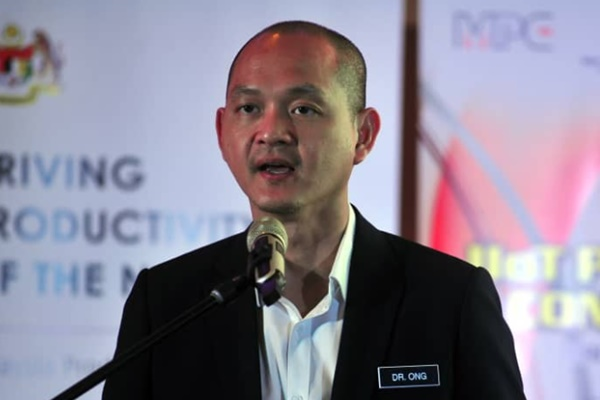
Malaysia’s Deputy International Trade and Industry Minister Ong Kian Ming
KUALA LUMPUR, March 9 (NNN-BERNAMA) ― Malaysia continues to welcome the Belt and Road Initiative (BRI) and investments from China, says Deputy International Trade and Industry Minister Ong Kian Ming.
He said this was despite the review of China-backed projects such as the East Coast Rail Link (ECRL).
“The review of the ECRL was due the cost and lack of transparency in negotiations by the previous government.
“Prime Minister Tun Dr Mahathir Mohamad has maintained that the ECRL will only continue as long as the cost is within the government’s financial capabilities,” he said in his speech at the Standard Chartered Belt and Road Forum here today.
However, Ong said despite BRI’s positive achievements, concerns over debt, sustainability and transparency had arisen among participating countries.
“There are fears of countries falling into debt traps, Pakistan, Laos and Maldives, just to name a few. In hopes of reducing its debt burden, Pakistan has leased its Gwadar port to China for 43 years.
“Similarly, Sri Lanka handed over its Hambantota port via a 99-year lease to China Merchants Port Holding in 2017. Experiences such as these have sparked a debate about national sovereignty,” he said.
However, Ong said it would be unfair to place the blame of the debt incurred as a result of BRI-related projects solely on the Chinese parties involved.
“After all, these projects were approved by the respective sovereign governments. The Chinese government was not in a position to control all of the negotiations made by the companies involved in BRI projects.
“The lesson from past BRI projects is a need for recipient countries to strengthen their evaluation and institutional frameworks when approving any large infrastructure projects. For that matter, the foundation of any successful project is good governance and a transparent procurement process,” he added.
Meanwhile, Standard Chartered Asean and South Asia chief economist Edward Lee said Malaysia was set to benefit from the BRI, especially in the commodities, chemicals and plastics, and the electrical and electronics sectors.
“Asean is a competitive export market and Malaysia has solid domestic policy, infrastructure and a skilled labour force,” he said.
Lee said political stability was important and despite the change in government last May, to date it has been a smooth transition.
“Compared to other countries that changed its governments, Malaysia’s change in its political landscape has been stable. This is what foreign companies look for before investing,” he said.
